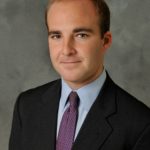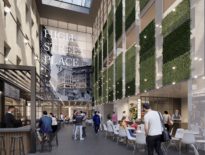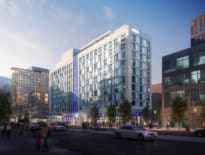
The 163-room Hyatt Centric hotel opened in February at the Congress Square development in Boston’s Financial District, contributing to a 4.7 percent increase in room supply.
In the first three months of 2019, the Boston and Cambridge lodging market remains strong although fell short of the operating performance levels experienced in the first quarter 2018. The first quarter, typically the market’s weakest quarter, ended with a 72.1 percent occupancy and average daily room rate (ADR) of $192.
The 0.6 percent decline in revenue per available room (RevPAR) in the quarter was due to supply outpacing demand, calendar shifts and other external factors. Although performance metrics for the market have declined through the first quarter 2019, occupied roomnights (demand) increased 3.9 percent with March representing the 36th consecutive month of demand growth. The market’s available rooms supply increased 4.1 percent with the opening of two new hotels, driving occupancy 0.2 percent below the prior year. Local operators had difficulty increasing room rates, resulting in a 0.4 percent decline in ADR.
Monthly Performance Erratic
While accommodated demand increased every month in the first quarter, monthly performance was erratic. January, one of the market’s lowest demand periods, was negatively impacted with shifts in the holiday calendar including New Year’s and Martin Luther King Day. Additionally, hotels which relied on government contracts and groups were negatively impacted by the government shutdown which ran through Jan. 25.

Sebastian J. Colella
The timing of the Massachusetts Dental Society’s Yankee Dental Congress also hurt the local lodging market as it typically takes place in Boston every January, bringing in over 15,000 attendees. This year’s Yankee Dental citywide overlapped into February causing a decline in rooms when compared to the prior year. Accommodated roomnights increased 1.3 percent in January but with rooms coming online from the prior year and the opening of the 135-room Residence Inn Roxbury, market supply increased 4.4 percent, causing occupancy to drop 1.7 points and ADR to decline 1.3 percent.
Whereas January experienced statistical declines, market occupancy in February surpassed 70 percent for the first time in history. The record high occupancy was a result of the Yankee Dental conference moving into the month from January, a considerable amount of in-house group stays at the large Back Bay hotels and multiple large-scale renovations which took place during the first quarter 2018 which have since been completed. Given the stronger demand levels, the market ADR increased over 10 percent when compared to 2018. The 163-room Hyatt Centric opened in mid-February contributing to the month’s 4.7 percent supply growth.
March performance was similar to that of January with demand growth weakening to only 0.7 percent. With the exception of the PAX East event which took place at the end of March, the other four weekends in the month were soft, resulting in monthly declines in occupancy and ADR.
RevPAR Growth Slowing, Labor Costs Rising
Lodging demand grew every month in the first quarter although at varying degrees. Supply growth outpaced demand in January and March, resulting in declines in both occupancy and room rates. Conversely, demand increased in February, creating compression throughout the market and the ability to drive ADR growth.

New supply is expected to outpace demand in 2019. Nine new hotels, with a total of approximately 1,500 rooms will open this year, representing a 4.5 percent increase to supply. The last time the market experienced an increase to its supply of the level was 2016, a year when RevPAR declined 0.5 percent.
Lodging demand is expected to continue growing between 3 percent and 4 percent in 2019, consistent with the last three years. With supply outpacing demand, coupled with an expected declined in convention related roomnights, and subsequently less compression, the Boston and Cambridge lodging market will continue to encounter limited rate growth. Unfortunately for hotel operators and owners, RevPAR growth is slowing at a time when the cost and availability of labor is adding pressure to hotels profitability.
Sebastian Colella is vice president at Boston-based Pinnacle Advisory Group.




 |
| 

